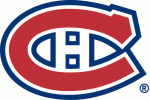 Since the lockout, the Montreal Canadiens have been one of the most successful franchises in the NHL. While they continue to fall short of their ultimate goal of winning a Stanley Cup, the Canadiens are one of only a handful of teams who consistently qualify for the playoffs.
Since the lockout, the Montreal Canadiens have been one of the most successful franchises in the NHL. While they continue to fall short of their ultimate goal of winning a Stanley Cup, the Canadiens are one of only a handful of teams who consistently qualify for the playoffs.
Off the ice, the team continues to generate record revenues thanks in part to a brilliant marketing campaign. According to Forbes, the Habs are worth just over $400 Million (rank 3rd in the NHL).
The Canadiens may be a provincial institution and rallying point for all Quebecers; but Toronto they are not. Montreal doesn’t have the willingness, patience or financial fortitude to fork out big bucks to watch an inferior product. In Toronto, the Maple Leafs have been abysmal for the better part of 40 years, yet fans and more importantly corporate sponsors continue to fill the ACC regardless of the teams on ice performance and will continue to do so till the end of time. In fact, earlier this year the MLSE (Maple Leaf Sports and Entertainment) was sold for over $1 Billion despite not having a single winning franchise in its holdings.
It’s hard to picture now, but during the Canadiens dark ages (1999-2003), attendance figures were often inflated to 17,000-18,000. On any given night, there were at least three to four thousand empty seat and fans would pay less than face value for a ticket. In fact, when the Molson’s put the team up for sale, not a single viable candidate emerged from Quebec. In the end the team, along with the Bell Center (then Molson Center) were sold for a measly $180 Million to George Gillet, an American business man with a spotty balance sheet. Under Gillet the Canadiens emerged from the red and 10 years later were sold back to the Molson’s for a cool $500 Million.
Today the Canadiens are once again at a cross roads. The Habs will miss the playoffs for just the 2nd time since the lockout, and while they continue to sell out every game, it’ll be interesting to see how fans, the media and corporate sponsors will react to the teams on-ice struggles. If there’s one thing about Montreal, it doesn’t support a loser. A stronger Canadian dollar today in contrast to 10 years ago will certainly ease the financial burden of the team, but Canadiens still pay the highest property taxes in all the NHL and they also rank among the upper echelon in payroll. The extra $6 – $10 million in revenue a single playoff series generates will surely be a concern for Geoff Molson who is heavily leveraged in his ownership of the team.
If this season is an indication of things to come, it’ll be interesting see the direction ownership takes to dig themselves out. It’s the old saying “To make money, you need to spend money”. In 1999, the Molson’s were cheap. The team didn’t draft well and they didn’t spend money trying to lure free agents. 13 years later, they still don’t draft well, and still don’t attract A list free agents. To make matters worse, they’re tied down to inflated contracts for the foreseeable future.
I’m very curious to know if Molson conducted a financial stress test before purchasing the Canadiens. Are the team and ownership really equipped to handle performance recession (i.e. a Re-build)? Are they prepared to lose money for 3 to 5 years?. Will businesses still fork out $1 Million for ads along the boards? If history is any indication, the answer is no.
Of course, the Habs missed on pretty good players, but so has every other team in this league. I think it’s too easy to say afterward that a team should have drafted some other guy that was still available, because there will always be such an impact player when you look back at a given draft.
On the other hand, I do think that a team drafting performance should be depreciated if they miss with a top 15-20 pick (depending on a given draf’s depth), and I’ll have to admit that the Habs did so way too often (Kyle Chipchura, David Fisher and Andrei Kostitsyn come to mind, even though I wouldn’t go as far as to call Chipchura and Kostitsyn “busts”).
But when it comes to finding that rare late round gem, the Habs are second to none (well, second to the Wings actually, but that’s no surprise). Mark Streit was drafted 262th overall! To me, this kind of pick really make up for the likes of David Fisher.
So yes, the Habs are not the best when it comes to drafting, but I wouldn’t say that “they don’t draft well”. I enjoyed reading your article though, and sorry for the harsh tone I used in my previous post; as you might have noticed, we, Habs fans, are really passionate about our team…
@90e56c63c4810a2a584cd20dc458e63b:disqus Thanks for taking the time to comment on my post. While I agree with you that the Canadiens have drafted several NHL calibre players in recent years, I think if you take a larger sample size and compare it to other teams such as Philadelphia, Chicago, and New Jersey, you’ll find that the Habs have missed out on some pretty good impact players which in turn has adversely effected the teams on ice performance.
The Habs don’t draft well?! You should do your homeworks, pal. The amount of good NHLers that were drafted by this organization in the last few years is nothing to be ashamed about: Price, Subban, Halak, Pacioretty, McDonagh, Plekanec, S. Kostitsyn, Leblanc, Emelin…
…Tinordi, Beaulieu, Gallagher, Bournival. All good prospects(just to further validate your point )